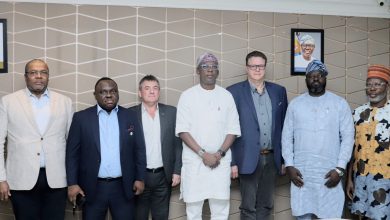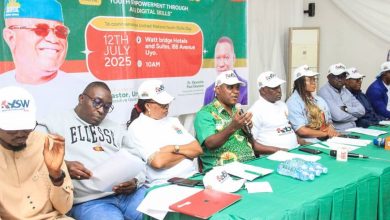FG Commits to Digital Inclusion for 35 Million Nigerians with Disabilities
Nigeria is set to include 35 million persons with disabilities in its digital economy plans.
NITDA says no one will be left behind as the country pushes toward 95% nationwide digital access and equity.
The federal government has announced plans to integrate over 35 million persons with disabilities into its digital economy roadmap, ensuring no citizen is left behind in Nigeria’s technological transformation.
The Nigerian government, through the National Information Technology Development Agency (NITDA), has reaffirmed its commitment to making the digital space inclusive by incorporating persons with disabilities into its long-term technology strategy. This pledge was highlighted by NITDA’s Director-General, Kashifu Inuwa, who emphasized the agency’s vision to close the access gap in digital literacy and innovation for marginalized populations.
Speaking on the necessity of inclusive planning, Inuwa stated that Nigeria’s goal of achieving 95% digital inclusion cannot be accomplished unless the country fully embraces the needs of the 35 million Nigerians living with disabilities.
“There is no way we can achieve 95 per cent digital inclusion if we exclude 35 million Nigerians,” he said. “We must be more intentional in the way we design our programs.”
He pointed out that while NITDA has made notable efforts in the past, including hosting specialized digital training sessions for people with special needs, a broader and more systemic approach is now required. As a result, the agency is actively working to roll out nationwide initiatives that focus on making digital tools and training more accessible for the disabled community.
To reinforce this commitment, Inuwa explained that NITDA will be restructuring its policies to include disability representation at every level of decision-making. The agency aims to involve persons with disabilities not just as beneficiaries but as stakeholders who contribute to the development of national ICT strategies and standards.
These measures include modifying public digital infrastructure to cater to accessibility needs, updating recruitment frameworks to eliminate barriers for disabled applicants, and forming inclusive advisory panels. The agency also intends to integrate disability advocates into key national committees involved in crafting technology training curricula, policy development, and ICT standardization.
According to Inuwa, including such voices at the policy level will not only enhance the relevance and sensitivity of digital programs but also ensure more seamless implementation by tackling bureaucratic bottlenecks head-on.
In recent years, the global emphasis on digital equity has gained momentum, particularly in developing nations where internet access and digital skills remain limited among vulnerable populations. Nigeria’s recognition of the need to uplift persons with disabilities into the digital mainstream signals a major step in aligning with the United Nations’ Sustainable Development Goals (SDGs), especially Goal 10 on reducing inequalities.
Stakeholders have welcomed the announcement as long overdue, with advocates stressing that inclusion must go beyond tokenism. They argue that true equity can only be achieved when policies are co-designed with the very people they are meant to serve.
As Nigeria’s digital economy continues to expand, touching areas such as fintech, e-commerce, education, and e-governance, the inclusion of persons with disabilities stands to significantly boost innovation, economic participation, and social integration.
This initiative reflects a growing understanding within government institutions that digital transformation must be human-centered, inclusive, and equitable. By proactively involving persons with disabilities in shaping the digital future, Nigeria not only fosters a sense of belonging among its citizens but also unlocks a vast pool of untapped potential.
With these fresh commitments, NITDA’s next challenge lies in translating policy intentions into measurable impact. The coming months will likely reveal how effectively the agency can execute on its promises and set a precedent for inclusive digital development in Africa.



